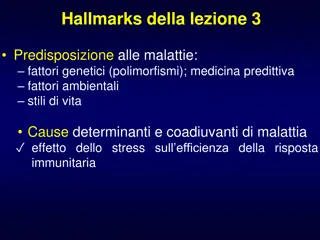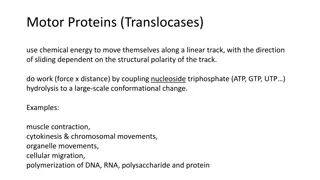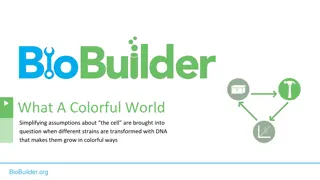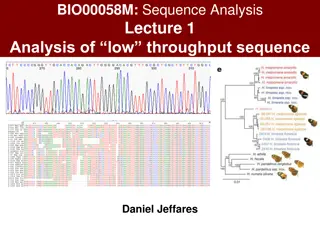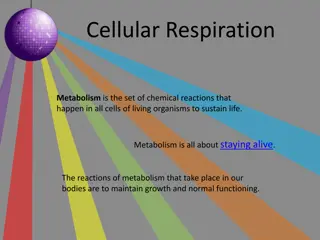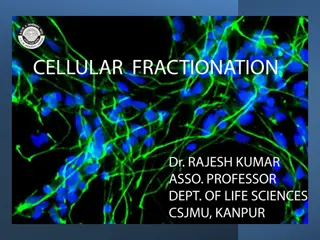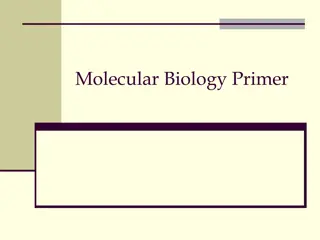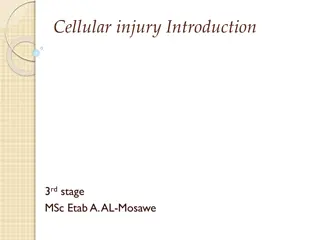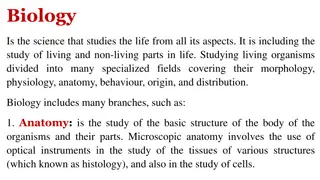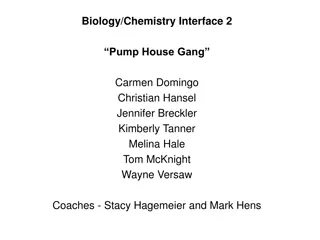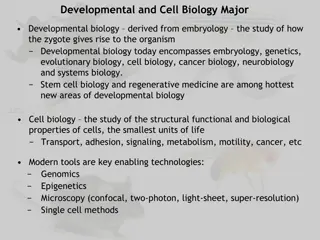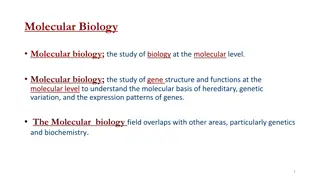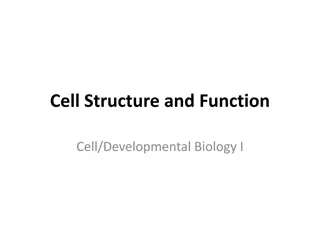Cellular Compartmentalization Unit in Biology Course
This unit focuses on cellular compartmentalization in cells, targeting second-year students in intro biology or microbiology courses. Students explore structural and functional differences between prokaryotic and eukaryotic cells through learning goals and an engaging alien mystery experiment from Venus. The unit aims to enhance understanding of cell organization and processes within cells.
Download Presentation

Please find below an Image/Link to download the presentation.
The content on the website is provided AS IS for your information and personal use only. It may not be sold, licensed, or shared on other websites without obtaining consent from the author.If you encounter any issues during the download, it is possible that the publisher has removed the file from their server.
You are allowed to download the files provided on this website for personal or commercial use, subject to the condition that they are used lawfully. All files are the property of their respective owners.
The content on the website is provided AS IS for your information and personal use only. It may not be sold, licensed, or shared on other websites without obtaining consent from the author.
E N D
Presentation Transcript
Context of Unit in Course Unit is for a second year, intro cell biology or intro microbiology course, scalable to first year intro biology This unit comes in the middle of the course Students are expected to know what cells are and basic cell structures as prior course knowledge Enduring concepts are compartmentalization in cells, and differences between prokaryotes and eukaryotes
Unit Learning Goals and Objectives Students will 1) Understand what cellular compartmentalization is a. LO define cellular compartmentalization b. LO explain the advantages of compartmentalization 2) Understand structural differences between pro and eu a. LO distinguish structural differences between pro and eu cells b. LO explain organization without membrane-bound structures 3) Understand functional differences between pro and eu a. LO - distinguish functional differences between pro and eu cells b. LO be able to match processes with organelles
Tidbit Learning Goals and Objectives Students will 1) Understand what cellular compartmentalization is a. LO define cellular compartmentalization b. LO explain the advantages of compartmentalization 2) Understand structural differences between pro and eu a. LO distinguish structural differences between pro and eu cells b. LO explain compartmentalization without membrane- bound structures 3) Understand functional differences between pro and eu a. LO - distinguish functional differences between pro and eu cells b. LO be able to match processes with organelles
ALIEN MYSTERY A probe has returned from Venus with life! You, the ridiculously overpaid NASA staff biologist, are responsible to classify these cells as prokaryotic or eukaryotic. Let s look at the first data from the lab. You can assume these are similar to known life forms (not silicon-based etc.)
Experiment 1 Collect cells Cell lysis Analyze components
Experiment 1 The cells contain DNA, RNA, proteins, and phospholipids, and is therefore exclusively classified as: 1) Prokaryotic 2) Eukaryotic 3) Can not determine
TPS Explain to your neighbor why your answer is correct.
01 59 58 57 56 55 54 53 52 51 50 49 48 47 46 45 44 43 42 41 40 39 38 37 36 35 34 33 32 31 30 29 28 27 26 25 24 23 22 21 20 19 18 17 16 15 14 13 12 11 10 09 08 07 06 05 04 03 02 01 00 Countdown Clock By Dr. Jeff Ertzberger
00 59 58 57 56 55 54 53 52 51 50 49 48 47 46 45 44 43 42 41 40 39 38 37 36 35 34 33 32 31 30 29 28 27 26 25 24 23 22 21 20 19 18 17 16 15 14 13 12 11 10 09 08 07 06 05 04 03 02 01 00 Countdown Clock By Dr. Jeff Ertzberger
TPS Correct answer is 3, cannot determine at this point. Central concept: prokaryotic and eukaryotic cells are similar at the basic molecular level . What is true of E. coli is true of the elephant. -- Jacques Monod Nobel Laureate 1965
Experiment 2 We now have some more analysis. Using light microscopy, we can see that the cells have two chromosomes. Based on that, they can exclusively be classified as: 1) Prokaryotic 2) Eukaryotic 3) Can not determine
Experiment 2 accessory data All of these cells are bacterial E. coli Vibrio cholerae Paracoccus denitrificans Fluorescent microscope images
TPS In light of the accessory observations, explain to your neighbor the correct answer.
01 59 58 57 56 55 54 53 52 51 50 49 48 47 46 45 44 43 42 41 40 39 38 37 36 35 34 33 32 31 30 29 28 27 26 25 24 23 22 21 20 19 18 17 16 15 14 13 12 11 10 09 08 07 06 05 04 03 02 01 00 Countdown Clock By Dr. Jeff Ertzberger
00 59 58 57 56 55 54 53 52 51 50 49 48 47 46 45 44 43 42 41 40 39 38 37 36 35 34 33 32 31 30 29 28 27 26 25 24 23 22 21 20 19 18 17 16 15 14 13 12 11 10 09 08 07 06 05 04 03 02 01 00 Countdown Clock By Dr. Jeff Ertzberger
Experiment 2 After our discussion, let s vote again. Since the cells have two chromosomes, they should be classified as: 1) Prokaryotic 2) Eukaryotic 3) Can not determine
TPS In light of the accessory observations, explain to your neighbor the correct answer. Central concept: a common misconception is that all prokaryotes have one circular chromosome
Experiment 3 The investigator is designing the next step. What evidence should she look for that would differentiate between prokaryotic and eukaryotic cells?
Experiment 4 We now have further analysis. Using electron microscopy, we generated this image of the cells. Based on that, they can exclusively be classified as: 1) Prokaryotic 2) Eukaryotic 3) Can not determine
Wrapup House analogy for cellular compartmentalization
Which represents prokaryotic and which represent eukaryotic? Prokaryotic organization Eukaryotic compartmentalization
Prokaryotic organization Eukaryotic compartmentalization
Wrapup House analogy Both organized functionally While eukaryotes have extensive compartmentalization due to internal membrane-bound organelles, prokaryotes are also organized intracellularly
Homework LO distinguish structural differences between prokaryotic and eukaryotic cells Complete this interactive animation from Wiley Publisher. http://www.wiley.com/legacy/college/boyer/0470003790 /animations/cell_structure/cell_structure.htm Complete the popup questions for prokaryotic cell, animal cell, and plant cell. Then complete the construct a cell exercise.



